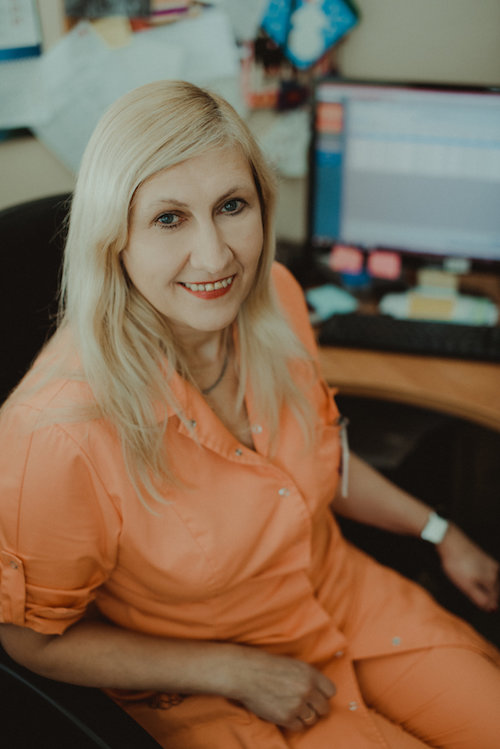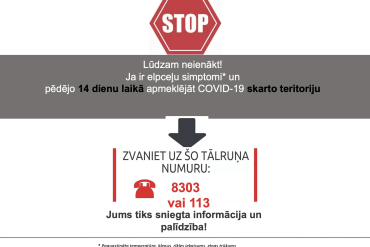 Head of the 5th department Iveta Spruģevica,
Head of the 5th department Iveta Spruģevica,phone +37167766151, please ask to be connected to extension 209.
Patient registration by phone (Mon-Fri, 09:00-16:00): +37167147290
or e-mail: santa.dardedze@nrc.lv.

The department offers the following rehabilitation programmes:
- Internal medicine rehabilitation
- Congenital and acquired organic neurological damage-related rehabilitation
- Rehabilitation of chromosomal/genetic disease patients
- Rehabilitation of cystic fibrosis patients
- Rehabilitation of cerebral palsy patients
- Rehabilitation for arthropathies
Every year, the 5th department of the Vaivari National Rehabilitation Centre provides rehabilitation for 2 000 children with congenital or acquired functional disorders; 80% of these children are under 14 years of age, and 20% are aged 15 to 18. The 5th department deals with the consequences of congenital and acquired organic damage to the nervous system (cerebral palsy, genetic diseases, polyneuropathy), arthropathies, and pulmonological and cardiological diseases.
Rehabilitation is essential for reducing functional damage in children
Rehabilitation is essential for mitigating the effects of children's functional disorders and allowing them to live life to the fullest. It aims to improve children's functional capacity and strengthen their self-care skills, participation and environmental adaptation. The Vaivari NRC is the leading rehabilitation institution in the country, is well equipped with modern medical technology and is run by professional specialists. Several doctors have also obtained physical and rehabilitation medicine certificates from the European Union of Medical Specialists.
Rehabilitation is usually provided by a multi-professional team involving medical practitioners and medical support staff. The members of the multi-professional team regularly improve their knowledge to advance in their professional work. The Vaivari NRC invites both its employees and patients to be active and participate in various sports and leisure activities. Patients have the opportunity to attend recreational activities at the Vaivari NRC - adaptive golf, bocce and tennis.
Cerebral palsy is a group of non-progressive movement disorders caused by congenital or acquired damage to the motor control centres of the brain. In developed countries there are 2-2.5 cerebral palsy cases per 1 000 live births, but in developing countries there are 1.5-5.6 cases per 1 000 live births; it affects all races. Studies in European countries show that not less than 10% of children have special needs.


